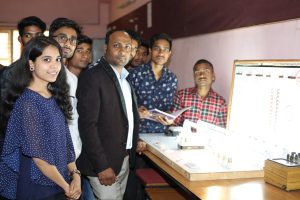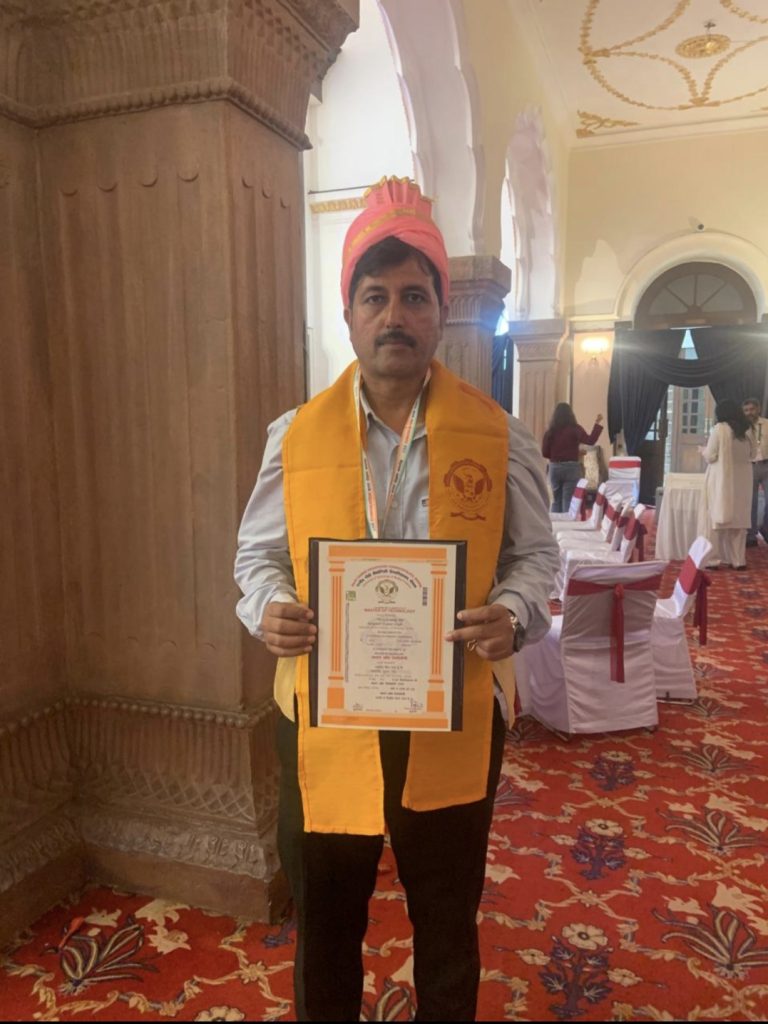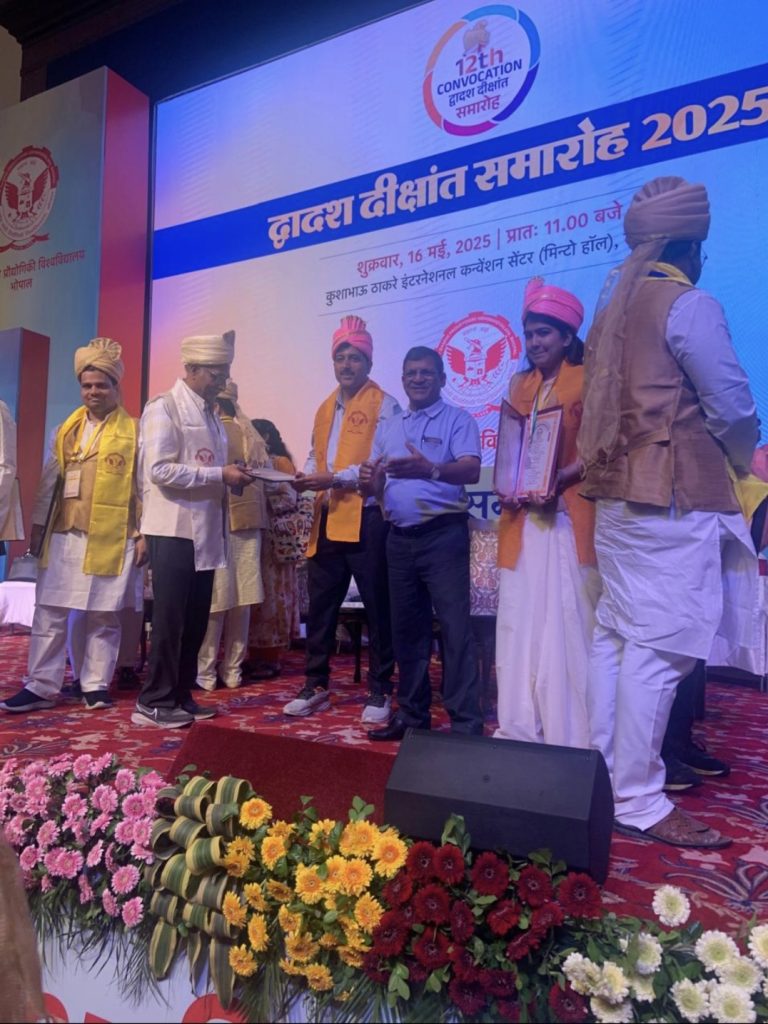 The M.Tech. in Energy Technology is a specialized postgraduate program designed to address the growing global demand for sustainable and efficient energy solutions. With the increasing emphasis on renewable energy sources, energy conservation, and environmental sustainability, this program aims to equip students with advanced knowledge in energy production, storage, and distribution. It covers key areas such as solar energy, wind power, biomass, hydroelectric systems, and energy-efficient technologies. The curriculum is designed to provide a blend of theoretical knowledge and practical applications, preparing graduates to contribute effectively to the energy sector.
The M.Tech. in Energy Technology is a specialized postgraduate program designed to address the growing global demand for sustainable and efficient energy solutions. With the increasing emphasis on renewable energy sources, energy conservation, and environmental sustainability, this program aims to equip students with advanced knowledge in energy production, storage, and distribution. It covers key areas such as solar energy, wind power, biomass, hydroelectric systems, and energy-efficient technologies. The curriculum is designed to provide a blend of theoretical knowledge and practical applications, preparing graduates to contribute effectively to the energy sector.
With industries and governments worldwide focusing on clean energy and sustainability, professionals with expertise in Energy Technology are in high demand. The program also emphasizes research and innovation, enabling students to explore emerging trends like smart grids, energy storage systems, and green hydrogen technology. Graduates can pursue careers in energy consulting, power generation, policy-making, and research & development in both public and private sectors.
- Course Overview
- Head of Department
- PEO
- Course Snapshot
- Course Content
- Facilities
- Career Options
- Faculty
- Activity
Course Overview
M Tech in Energy Technology is recognized as a broad field of engineering that deals with energy efficiency, energy services, facility management, plant engineering, environmental compliance and alternative energy technologies. It is an interdisciplinary programme, comparable to Mechanical engineering, Electrical engineering and Civil engineering.
This is a 2 year post graduate degree course in which a student gets the in-depth knowledge of various facets of energy. The focus of the program lies in the concept of various aspects of energy such as Energy Scenario, Environmental Impact of Energy Systems, Energy Conversion and Conservations, Renewable Sources of Energy, Energy Storage, Green Power, Wind Energy Technology, Energy Audit and Management etc. are covered in the syllabus.
The relevant laboratory experiments are also carried out at the college campus. The alumni of the course are well placed in leading energy industries in India as well as overseas or joined government organizations.
Head of Department
 The Department Coordinator is Prof. Deepa Golani. She believes that Renewable and Nuclear Energy can provide possible long-term solutions for the energy problems. In the short run, India has to aggressively pursue energy efficiency and Demand Side Management to improve the efficiency of supply and utilization devices and systems. The development of new energy technologies provides technological challenges as well as significant business opportunity.
The Department Coordinator is Prof. Deepa Golani. She believes that Renewable and Nuclear Energy can provide possible long-term solutions for the energy problems. In the short run, India has to aggressively pursue energy efficiency and Demand Side Management to improve the efficiency of supply and utilization devices and systems. The development of new energy technologies provides technological challenges as well as significant business opportunity.
Program Educational Objectives (PEO)
PEO-1: The program will develop in-depth knowledge to analyze, formulate and provide solutions for real time problems in the field of energy technology.
PEO-2: Ability to peruse advanced research in emerging areas of solar technology and energy conservation.
PEO-3: Equip students to understand and evaluate alternative energy sources and planning of energy source-demand chain.
PEO-4: To exhibit professionalism, ethical attitude, team work and adapt to current trends in their day to day affairs.
Course Snapshot
- Duration: 2 Years (4 Semesters)
- Eligibility: Bachelor’s degree in relevant engineering fields with a minimum of 50% (45% for OBC/SC/ST)
- Specialization: Energy Technology, Renewable Energy, Power Systems
- Industry Exposure: Internships, site visits, and collaborations with energy firms
- Software & Tools: MATLAB, HOMER, PVSyst, RETScreen, ANSYS, AutoCAD
- Research Areas: Smart grids, biofuels, energy storage, hydrogen energy, climate change mitigation
Course Content
Mtech Energy 1st sem Syllabus<br/>
Mtech Energy 2nd sem Syllabus<br/>
Mtech Energy 3rd sem Syllabus<br/>
Mtech Energy 4th sem scheme
Facilities
The department provides state-of-the-art infrastructure for students, including:
- Renewable Energy Labs with solar, wind, and bioenergy simulation tools.
- Smart Grid & Energy Simulation Lab for real-time power system analysis.
- Energy Audit & Conservation Lab with modern efficiency testing equipment.
- High-Performance Computing Lab for energy modeling and optimization.
- Industry Collaboration Cell for live projects and expert lectures.
Career Options
Graduates of M.Tech. in Energy Technology have diverse career opportunities in:
- Renewable Energy Engineer – Designing and implementing solar, wind, and biomass projects.
- Energy Auditor & Consultant – Improving energy efficiency in industries and commercial buildings.
- Power Plant Engineer – Working in thermal, nuclear, and hydro power plants.
- Smart Grid Engineer – Developing intelligent energy distribution systems.
- Government & Policy Making – Advising on sustainable energy regulations.
- Research & Development – Innovating new energy technologies in laboratories and universities.
- Entrepreneurship – Establishing startups in clean energy solutions and sustainable technologies.
The global shift towards green energy and carbon neutrality ensures a bright future for professionals in this field.
Faculty
The Department of Energy Technology boasts a team of experienced faculty members with expertise in renewable energy, smart grids, environmental engineering, and energy policy. Faculty members hold Ph.D. and M.Tech. degrees from prestigious institutions and actively participate in research, industrial collaborations, and conferences.
Regular faculty training programs, international seminars, and technical workshops ensure that the department stays at the forefront of energy innovation.
Activities
The department organizes various events and activities to provide hands-on experience and industry exposure:
- Workshops & Technical Training on solar PV, wind energy, and smart grids.
- Guest Lectures by industry leaders in energy and sustainability.
- Industrial Visits to power plants, energy research labs, and green buildings.
- Hackathons & Innovation Competitions on energy efficiency and green technologies.
- Internships & Research Projects with leading energy companies.
- Sustainability Drives like energy conservation awareness programs and community initiatives.
These activities help students build technical expertise, problem-solving skills, and industry connections, ensuring a successful career in the energy sector.



